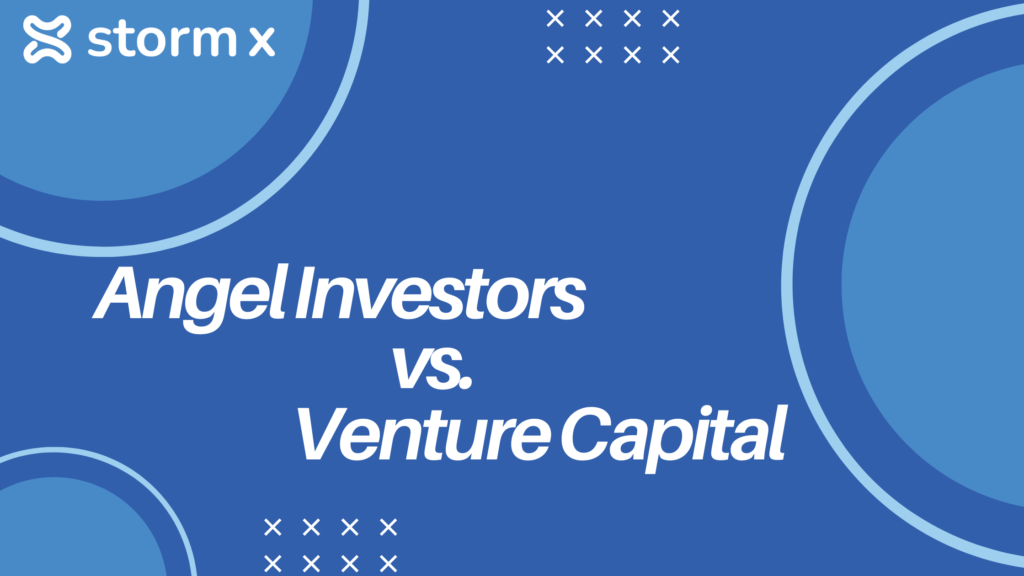Understanding the distinction between the various financing options for your company is critical. For entrepreneurs embarking on their business journey, it’s common not to have enough personal funds to fully support their venture.
This often leads them to explore alternative sources of financing, such as equity investors, instead of opting for traditional business loans.
Two prevalent types of equity investors that new companies frequently turn to are angel investors and venture capitalists. Both bring their unique outlooks, preferences, and advantages to the table. Therefore, comprehending the contrast between these two kinds of investors is vital for making an informed choice for your enterprise’s future.
Exploring Angel Investors
An angel investor is typically a person who infuses a significant amount of personal funds into an early-stage startup. In exchange, they receive equity or convertible debt in the company.
Not all angel investors are accredited, but many are. To be an accredited investor, one must adhere to the following criteria outlined by the U.S. Securities and Exchange Commission (SEC):
Angel investors should have maintained an annual income of at least $200,000 over the past two years, with a strong probability of the same level of income in the near future. This income requirement rises to $300,000 if the angel investor files taxes jointly with their spouse.
Their total net worth should be at least $1 million, irrespective of marital status or how they file their taxes.
Angel investors come with certain advantages:
- Their investment decisions are often more flexible than those of banks or venture capitalists since they bear the risk individually and can invest in any manner they see fit. This flexibility allows them to fund ventures that traditional lenders might consider too risky.
- For entrepreneurs, the risk associated with angel investors is comparatively lower than with other funding options. In many situations, angel investors do not demand repayment if the startup fails, making them a safer choice for scaling your business.
- Angel investors usually have a wealth of business knowledge. Most of them have earned their wealth through entrepreneurial ventures, and their insights can be beneficial for a new startup.
However, a significant downside of partnering with angel investors is that they often require a substantial stake in your business, reducing your control over its management.
Tip! To find angel investors, visit StormX Capital. We can assist you in locating the right group of angel investors who can strategically cover your round.
Exploring Venture Capitalists
Venture capitalists can be either individuals or firms that are willing to inject funds into high-risk startups. They are typically attracted to ventures with the potential for rapid growth, which is seen as a worthy counterbalance to the associated risk of failure. Venture capitalists may ultimately take over the company or acquire a large number of shares if the startup goes public via an initial public offering (IPO).
Venture capitalists come with certain advantages:
- They can provide startups with substantial investment amounts. Venture capitalists are known for making significant financial commitments to businesses. So, if your startup requires a large influx of cash to kick-start operations, partnering with a venture capitalist might be the most suitable option for you.
- Venture capitalists represent a low risk for entrepreneurs. Similar to angel investors, venture capitalists usually don’t demand repayment if the venture doesn’t succeed.
- They bring extensive knowledge and network to the table. Venture capitalists, like angel investors, have a wealth of relevant expertise. They also offer access to a broad network that includes other investors, industry leaders, and useful third parties.
However, the primary drawback of venture capitalists is the reduced control entrepreneurs retain over their business operations. Venture capitalists frequently demand a controlling stake in your startup, effectively diluting your leadership role..
Understanding Differences between Angel Investors and Venture Capitalists
While both angel investors and venture capitalists cater to innovative startups, they operate differently in various aspects:
- Angel investors are individuals who invest their own money into startups in return for equity. They usually work alone and prefer investing in companies they genuinely believe in.
Venture capitalists, on the other hand, are part of firms that source their capital from various entities, including individuals and corporations. They manage funds professionally, working closely with founders to ensure healthy company growth.
- Angel investors typically invest smaller amounts, ranging from $25,000 to $100,000. In contrast, venture capitalists generally invest much larger sums, averaging around $7 million per company.
- Angel investors primarily offer financial support with occasional advice or networking, whereas venture capitalists are heavily involved, contributing strategic advice and recruiting assistance to their investee companies.
- Angel investors focus on early-stage businesses, funding late-stage technical development and early market entry. Venture capitalists, however, invest in both early-stage and more developed companies, depending on the firm’s focus.
- Due diligence varies between the two. Angel investors, investing their own money, may conduct limited due diligence. Venture capitalists, responsible to their fund contributors, conduct extensive due diligence, often incurring substantial costs in their investment research.
Now that you’ve understood the differences between an angel investor and a venture capitalist, are you ready to elevate your company? We’ve crafted a free e-book for founders on navigating their investor journey independently, without the need for third-party outreach services. Click here to download “Startup Direct Investor Relations”.



